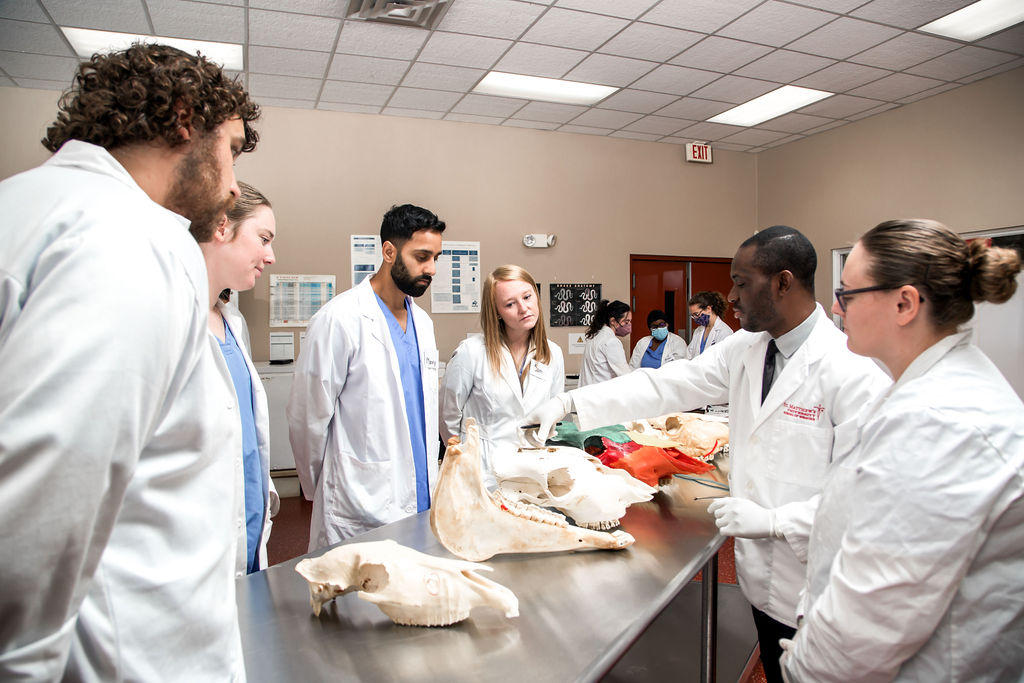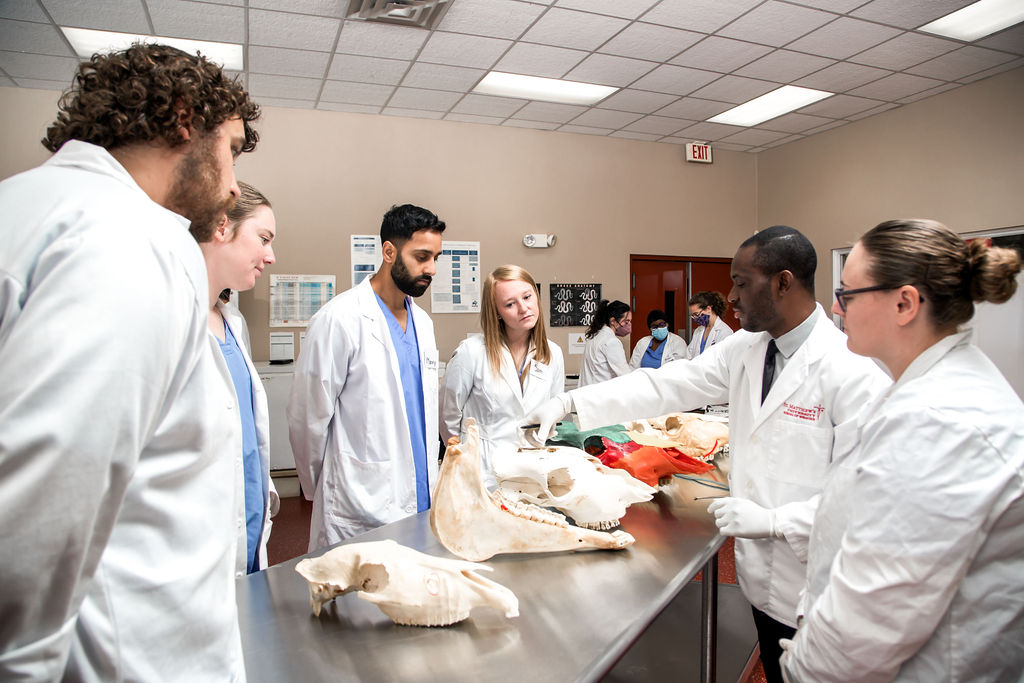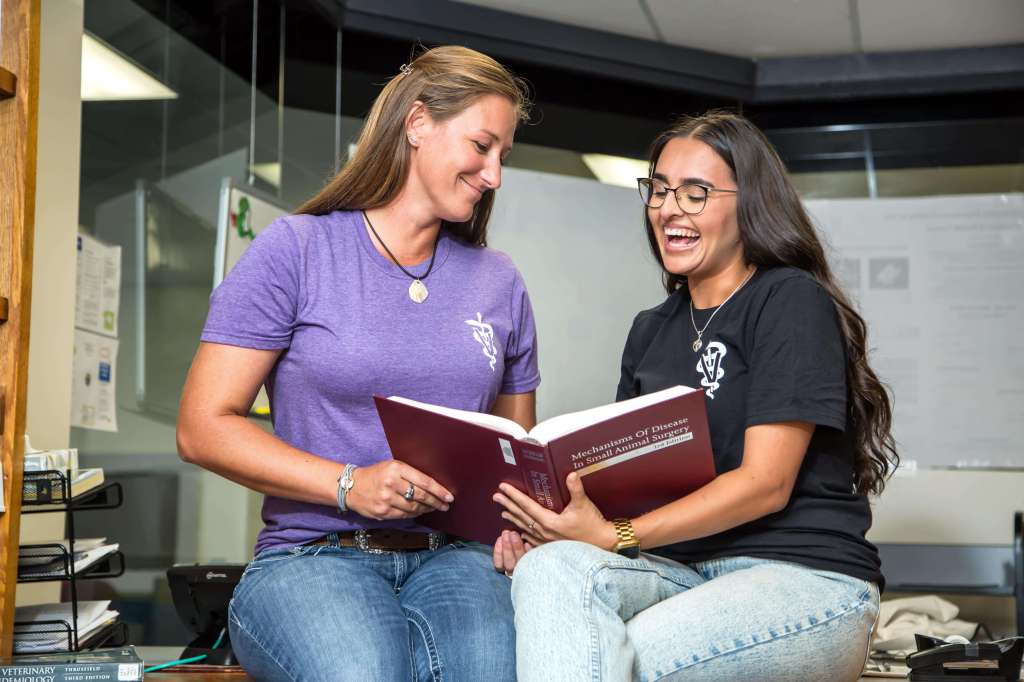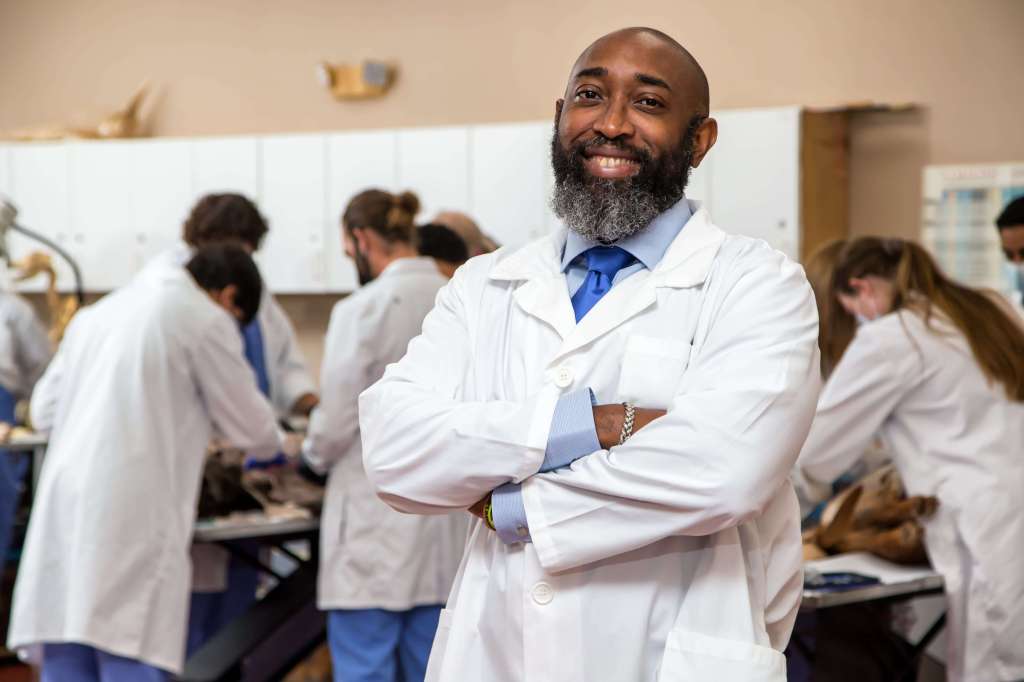
How to Prep for Your Veterinary School Interview
Discover tips and insights to help you achieve success on a key part of the veterinary school application process: the admissions interview.
If you’re interested in veterinary schooling, you know that the interview process is important. But what can you do to make sure you ace your interview and get into the school of your dreams?
In this blog, we will provide tips and insights to help aspiring veterinarians prepare for vet school interview questions, and provide a few examples of what you may be asked. So read on and get ready to wow the admissions committee!
When Do Veterinary Schools Hold Interviews?
Most veterinary schools have a thorough admissions process — which is also usually very competitive. As part of the application process, veterinary schools typically require applicants to have an interview with faculty members or the admissions team.
This is done so that the application review committee can get to know you better and see if you are a good fit for the school. It also gives you a chance to show off your knowledge and passion for veterinary medicine, and ask questions to learn more about the program and what it has to offer.
The interview is just one piece of the puzzle, but it’s an important one. To find out more about the whole process, make sure you take a look at our guide to applying to veterinary school.
When schools conduct these interviews will depend on their individual admissions and intake schedule. At St. Matthew’s University School of Veterinary Medicine (SMUSVM), we offer three program start dates per year, in January, May and September, and accept applications on a rolling basis. This means that interviews can occur throughout the year, depending on your chosen start date and personal preference.



Common Vet School Interview Questions
The questions you’ll be asked during your veterinary school interview will vary depending on the school. But there are some vet school interview questions that often come up, so it’s a good idea to be prepared for those. Here are a few examples of common veterinary interview questions:
Why do you want to be a veterinarian?
This is meant to help the admissions committee get to know you and understand your motivations for wanting to become a veterinarian. Think about why you became interested in veterinary medicine and what has inspired you to pursue this career path. Maybe you’ve always loved animals and have been drawn to their care. Or maybe you had a great experience with veterinarians when you were younger and that sparked your interest in the field. Whatever your story may be, make sure you’re prepared to talk about it in an articulate and engaging way.
What qualities would you bring to the profession?
The admissions committee will also want to learn if you would be a good fit for veterinary medicine. When thinking about your answer, consider what qualities or attributes you have that would make you a good veterinarian. Are you compassionate? Hardworking? A good communicator? A critical thinker? Think about what makes you unique and how that can be an asset in the veterinary field. For example, if you’re a bilingual applicant, that could be helpful in communicating with clients of all backgrounds.
What do you think are the biggest challenges facing veterinarians today?
This question is meant to gauge your understanding of the profession and the current landscape. It’s important to be up-to-date on the latest issues facing veterinarians, such as the rise of AI and how it is changing the industry. You should also be prepared to discuss your thoughts on these developments and how you think they would impact you as a future veterinarian.
What experience do you have working with animals?
Veterinary medicine is a very hands-on profession, so it’s important that you have some experience interacting directly with animals. This could be anything from volunteering at an animal shelter to working at a veterinary clinic. Even growing up with pets is useful to mention. If you don’t have much direct experience with animals, be prepared to talk about any related experience you may have, such as working in customer service or a medical office.
What do you know about our veterinary program?
This DVM interview question is meant to assess your level of interest in the Doctor of Veterinary Medicine program you are applying for, and to see if you would be a good fit within the school’s academic community. It’s important to do your research on the veterinary programs you’re applying to so that you can answer this question confidently. Be sure to mention what you like about the program, and how it aligns with your academic goals and personal interests. For example, maybe you’re interested in the program because students undertake rotations in the U.S. and Canada, or because of the opportunity to work directly with aquatic animals during Basic Science.
Do you have any questions for us?
This is your chance to ask any questions you may have about the program or the profession in general. It’s important to come prepared with a few questions to show that you’re truly interested in the program and the field. Some example questions you could ask include:
- What kind of research opportunities are available?
- What are the program’s strengths?
- Where are some of your graduates practicing?
- Do alumni provide mentorship opportunities?
By asking questions, you’ll show that you’re interested in the program and gain valuable insights that can help you make your decision about whether the school is right for you.
How to Prepare for Vet School Interviews
Now that you understand some of the vet interview questions you could be asked and the direction you may want to take with your answers, it’s time to prepare as effectively as possible. It’s best to go beyond just having a general idea of what you’ll say in the interview, and actually practice sitting down, having the questions read to you and providing detailed answers.
Here are a few tips from admissions experts to help you feel ready and confident in advance of a veterinarian interview:
- Enlist some help. Having someone you trust ask you questions and listen to your answers is the best way to prepare. They can also provide valuable feedback about how your answers are landing.
- Practice giving complete answers. Don’t simply plot out a general idea of what you’ll say or even just verbalize a list of things you want to cover. Give your detailed answer out loud; this will emphasize what’s working and help you identify areas that you may want to improve upon.
- Treat it like a professional job interview. Dress appropriately (usually business casual) and arrive or log in on time.
- Avoid over preparing. While it may seem counter-intuitive, it is possible to practice too much or think too much about the importance of the interview. This can cause undue stress and make you appear tense. Give yourself time to prepare so you’re not rushing, and then stop when you feel confident. It is also a good idea to spend some of the day before doing something fun, so you’re as relaxed as possible.
Apply to St. Matthew’s University
We hope you are now more comfortable about the veterinary school admissions process and feel prepared to ace your interview. For more tips and insights about creating an effective application, check out this blog post.
At St. Matthew’s University School of Veterinary Medicine, we consider applicants holistically and encourage all those who are passionate about animal health to learn more about our comprehensive Doctor of Veterinary Medicine (DVM) program. If it looks interesting, take a look at our admissions requirements and feel free to contact us with any questions.
You can also learn more about veterinary student life at St. Matthew’s University by viewing this DVM student testimonial video:
And if you’re excited and ready to get started, jump right in and start your application today. Beneficially, you can submit an incomplete application and upload outstanding documents as they become available. This accelerates the admissions review process and gets you a decision sooner, gaining you more time to plan your educational journey to Grand Cayman for Basic Science (semesters 1-7 of the DVM program)!
FAQs About Veterinary School Interviews
Depending on when each school’s admissions process runs and intakes begin, interviews can take place throughout the year. They usually occur after your complete application has been received, so the admissions committee has a complete understanding of your candidacy and can ask detailed questions about your academic performance, passion for animals, interest in veterinary medicine, etc.
Be sure to approach each question thoughtfully and provide a detailed, authentic answer. Draw on examples from your life and be sure to describe why you are passionate about animal care and what skills you bring to the table. Admissions committees want to get to know you as a person, so be sure to share as much relevant information about yourself as you feel comfortable providing.
A great way to prepare is to enlist the help of a friend or family member who you feel comfortable with. Have them ask you sample questions and provide your full answers verbally. Then have them provide feedback about what worked, what didn’t and what you should consider highlighting that you may have missed.
A few useful tips to perform well on the day of your interview include finding a way to relax beforehand so you do not appear tense or stressed, dressing professionally, arriving on time, taking a moment before each answer to think through detailed responses, and providing a real glimpse into who you are as a person with authentic responses. This will communicate that you’re confident, prepared and passionate about the opportunity to pursue animal healthcare as a career.